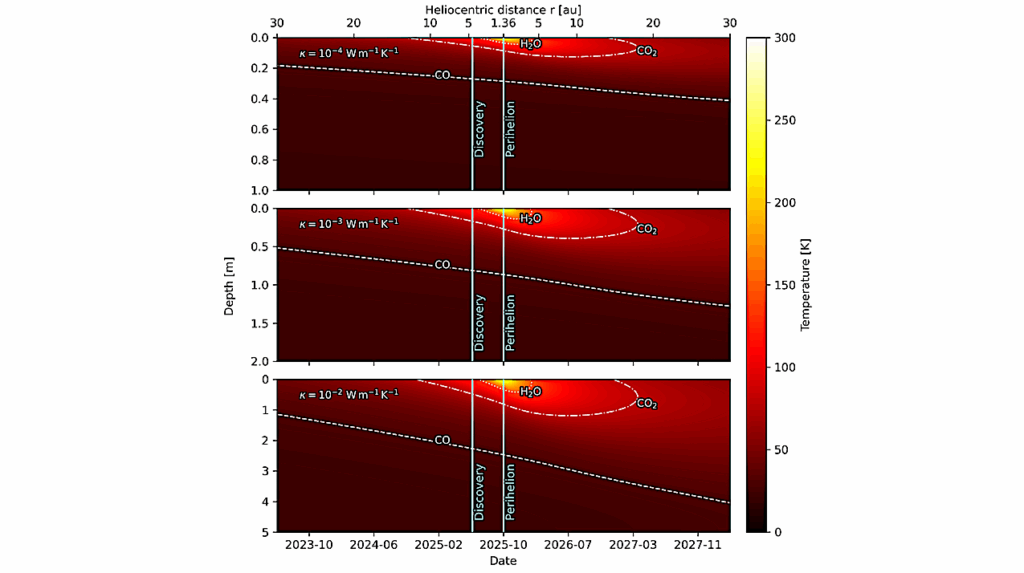Spin-Forbidden Formation of Amide Molecules in the Interstellar Medium

In this study, two-state spin-forbidden mechanisms are proposed for the barrierless formation of amide isomers in the C2H5NO family of molecules. This family belongs to the first level of complexity among the molecules with peptide bond that are precursors to proteins, which are building blocks of life, and therefore are highly relevant to astrochemistry and astrobiology.
Our density functional theory study demonstrates the significance of spin-forbidden pathways in the formation of acetamide (CH3CONH2), N-methyl-formamide (CH3NHCHO), and acetimidic acid (CH3COHNH) from the acetaldehyde, imidogen, formamide, and methylene reactants.
Considering the rate constants of analogous reactions in the interstellar medium (ISM), we anticipate that the detected abundances of acetamide and N-methyl-formamide in the Sagittarius B2 North region can be rationalized by the suggested formation pathways.
The proposed mechanism also predicts the synthesis of acetimidic acid, motivating future observational efforts to identify this molecule in the ISM.
Spin-Forbidden Formation of Amide Molecules in the Interstellar Medium, chemrxiv.org
Astrobiology, Astrochemistry








